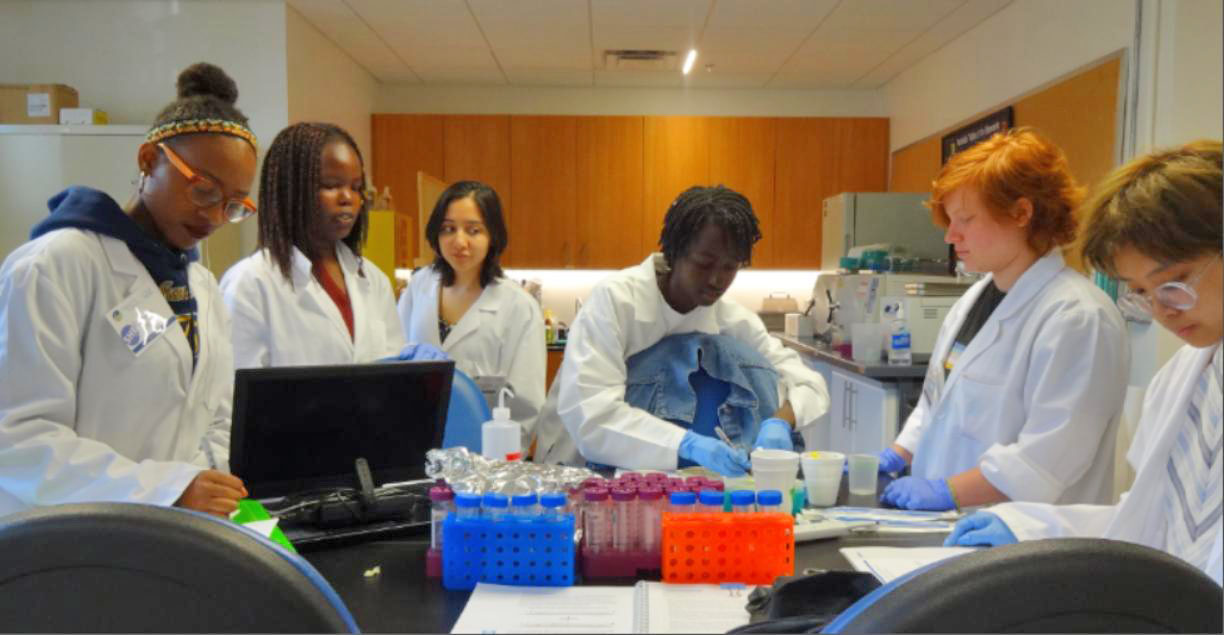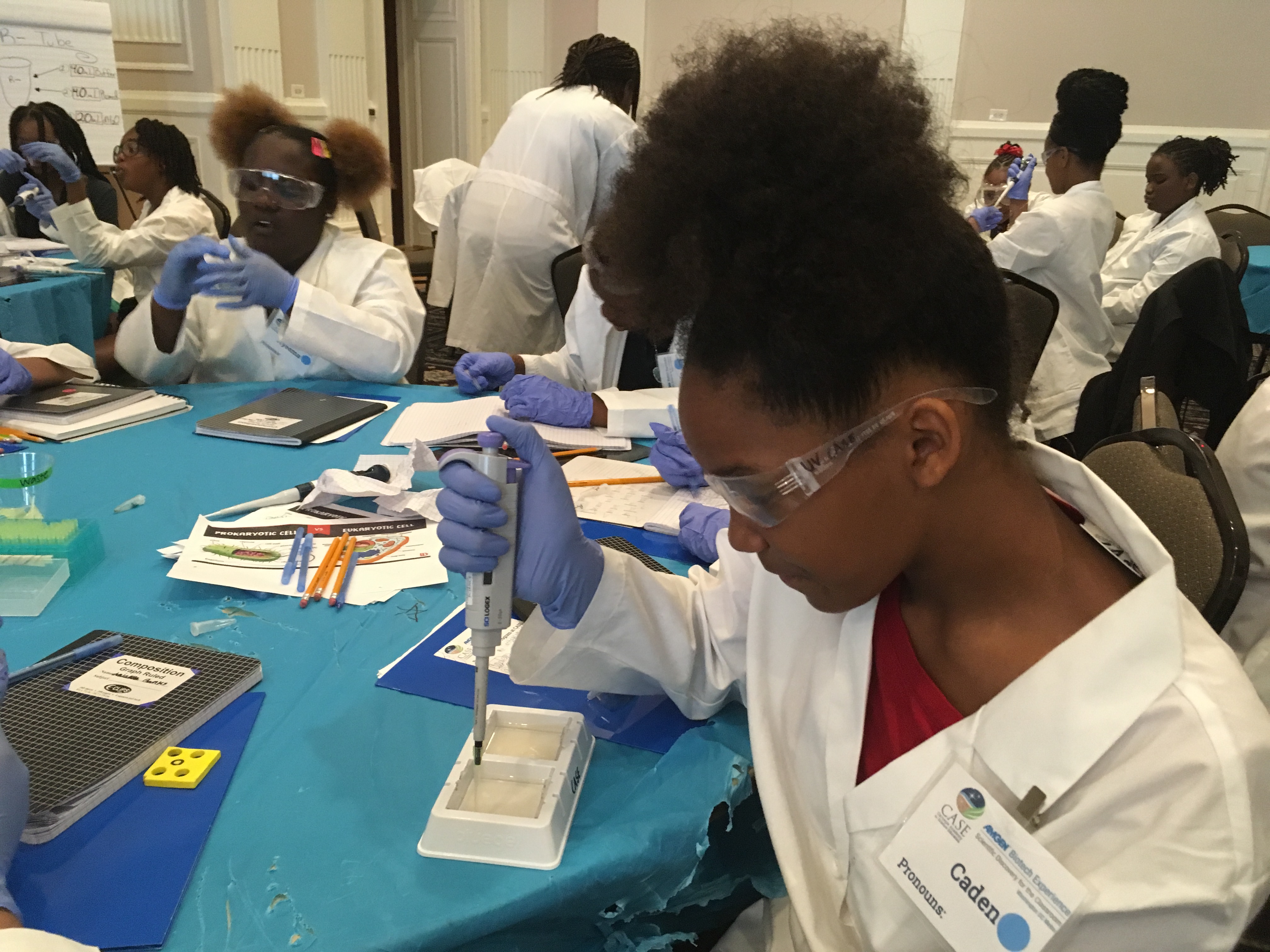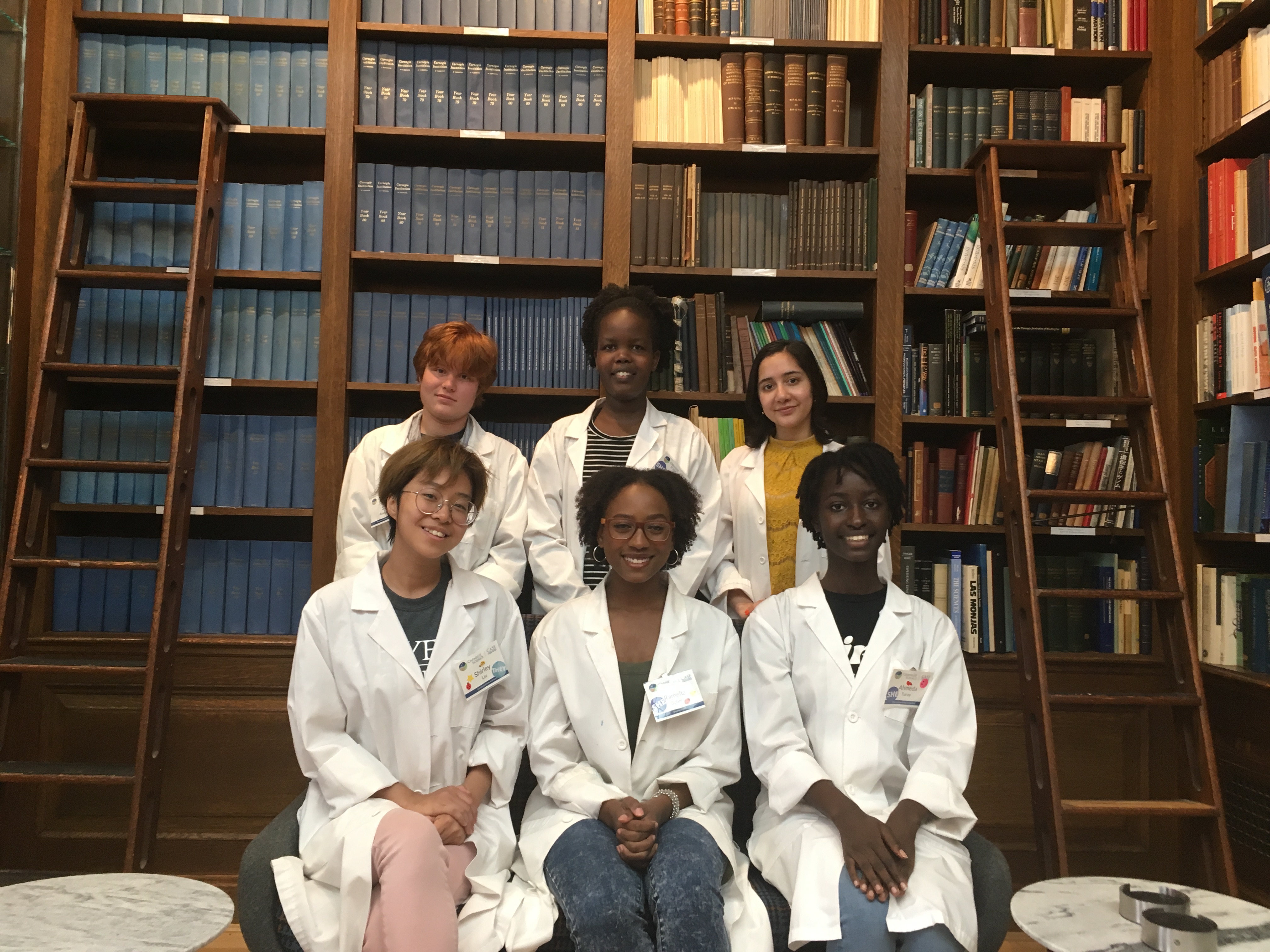Carnegie Academy for Science Education: Immersing Girls in Biotechnology, Teacher Professional Development, and Summer STARS
In 2019, the Carnegie Academy for Science Education (CASE) partnered with the National Capitol Area YWCA to train 100 girls in biotechnology using Amgen Biotech Experience (ABE) kits. CASE leads the ABE in Washington, D.C., called ABE-DC, under a grant from the Amgen Foundation. ABE-DC established an extensive professional development program and a rigorous biotechnology curriculum, including research-grade laboratory equipment, to share with D.C. high school teachers. The objective is for teachers to implement real-world biotechnology labs in their classrooms. In a new initiative, CASE immersed the YWCA girls in biotechnology experiments and science career options for one week in July 2019.

These high school and college student interns are setting up for the week to train 100 National Capitol Area YWCA girls in biotechnology using Amgen Biotech Experience (ABE) kits. They later trained Washington, D.C., high school teachers participating in the ABE-DC professional development institute.
The one-week immersion at Carnegie’s headquarters was part of the YWCA’s Science, Technology, Engineering, Art, and Mathematics (STEAM) six-week summer program. Under the leadership of Marlena Jones, acting director of CASE, two dedicated Ph. D. molecular biologists taught the sessions with the assistance of six high school and college student interns and the CASE staff. The interns were trained to use and maintain the scientific equipment, and each intern became proficient in one experiment, such as using gel electrophoresis to separate DNA fragments, to help support the instructors and girls.
At the start of the program, the 100 girls were given lab coats, goggles, and gloves, and they received safety training. The girls extracted DNA from cells, ran DNA gels, transformed bacterial cells, and much more. The girls demonstrated biotech experiments and equipment to their families and guests during a YWCA STEAM Carnival at the end of the program.
Following the YWCA program, ABE-DC hosted a professional development institute for Washington, D.C., high school teachers. Teachers learned how to use the ABE-DC kits and curriculum and were certified to borrow the kits to use in their classrooms. The same interns assisted in the professional development session.

National Capitol Area YWCA girls are loading DNA samples into agarose gels to separate DNA fragments according to size and charge as part of their week-long training session.
That summer CASE also conducted a six-week summer research experience in astronomy, called Summer STARS, for 11 Washington, D.C., high school students. Summer STARS students are paid through the city’s Marion Barry Summer Youth Employment Program. The students learned laboratory research techniques, interacted with Carnegie scientists and staff, and received training in college and workplace readiness. The students completed a research project and presented their findings to their families and other guests at the end.

